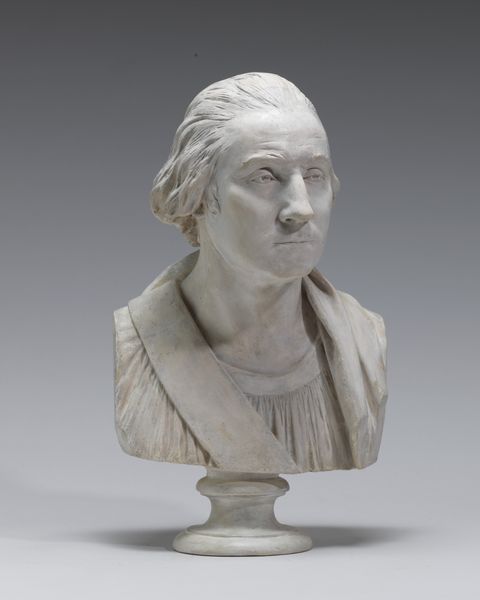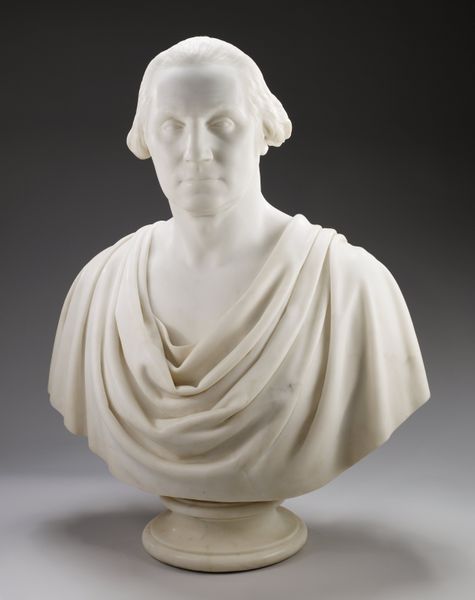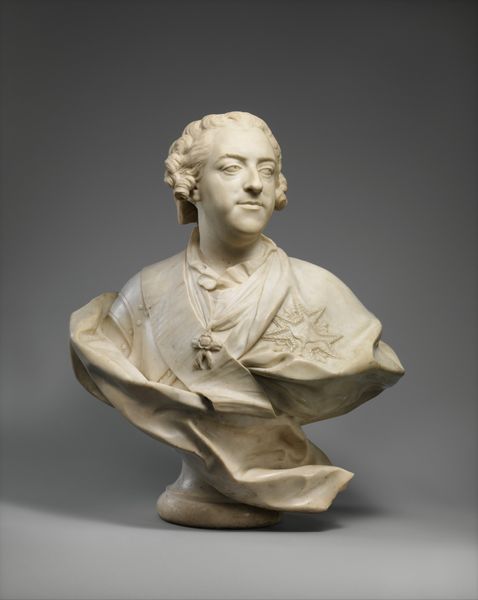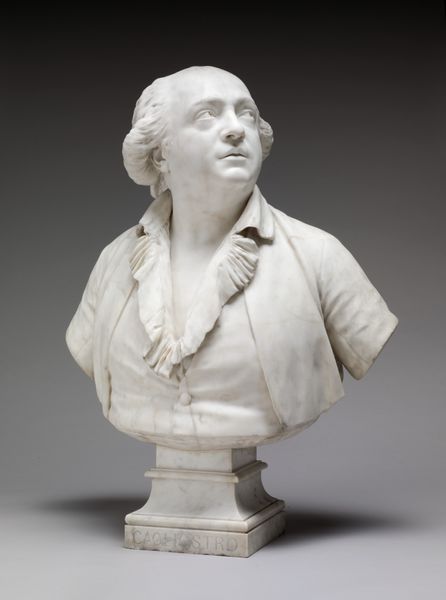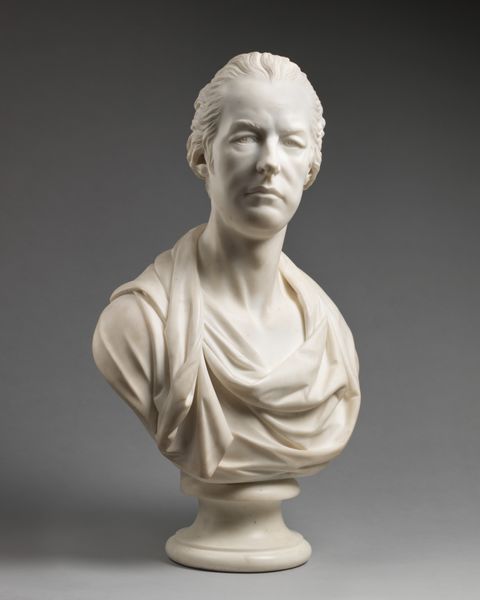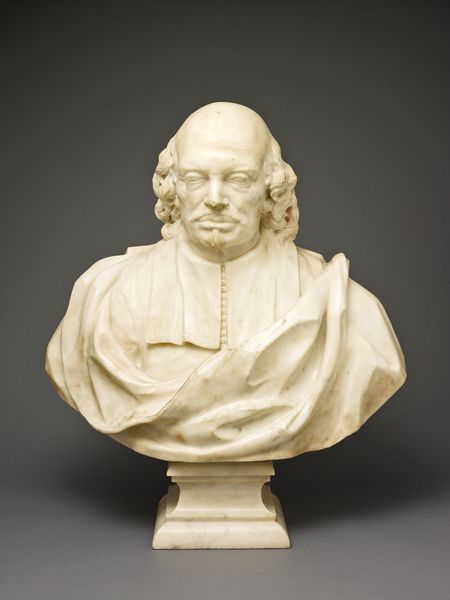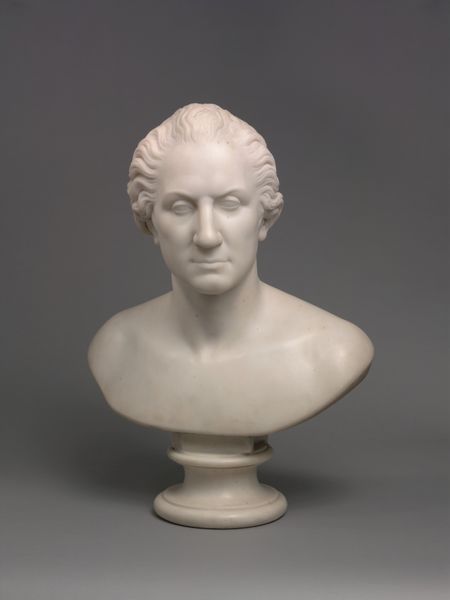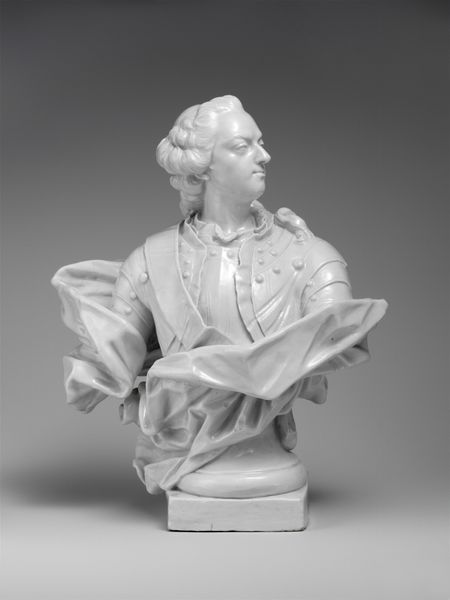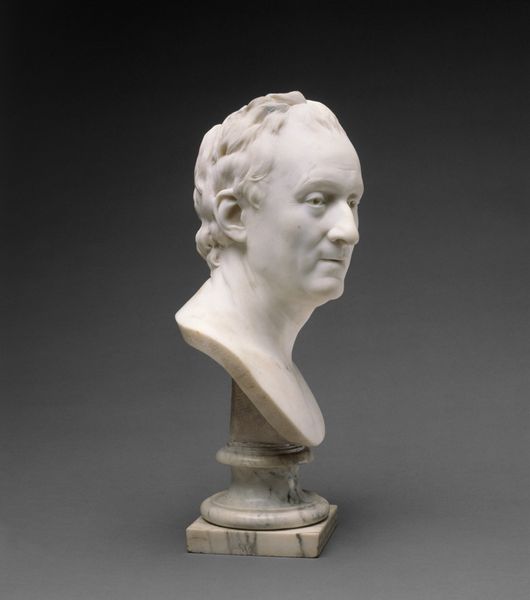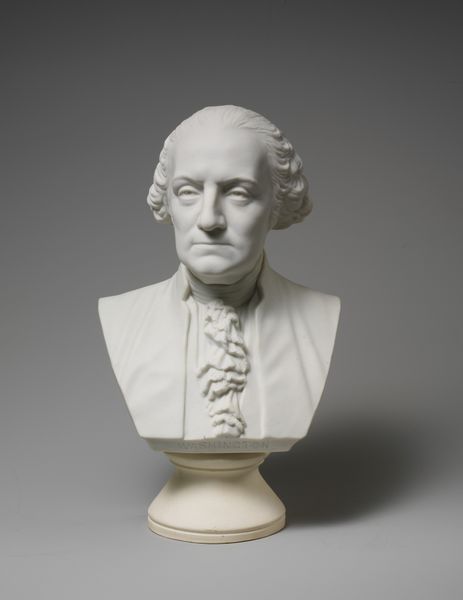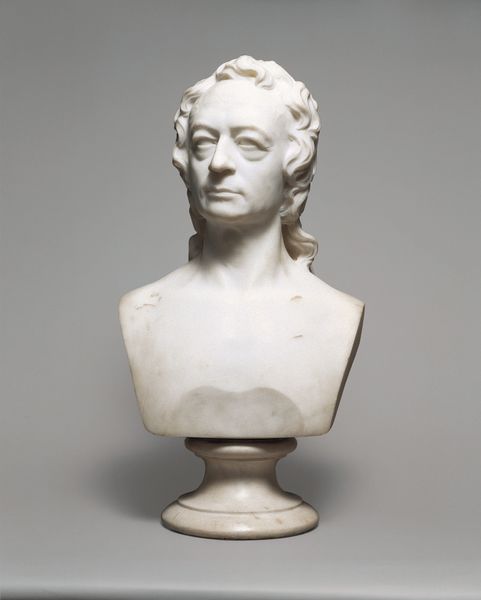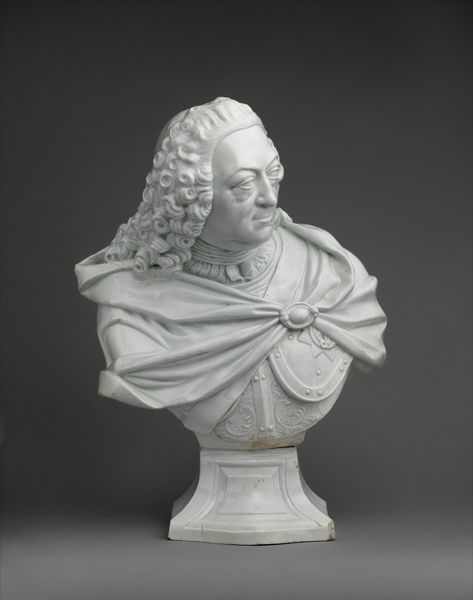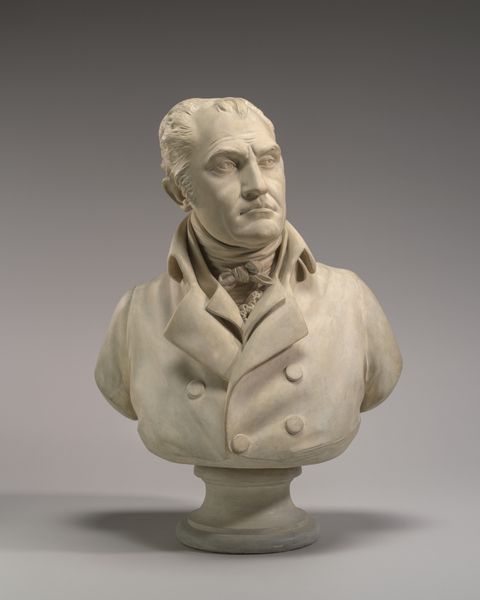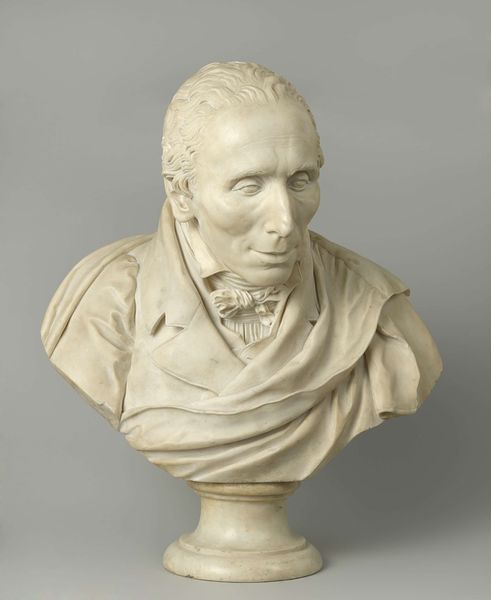
ceramic, porcelain, sculpture
#
portrait
#
neoclacissism
#
ceramic
#
porcelain
#
sculpture
#
history-painting
#
decorative-art
Dimensions: 32.5 × 22 cm (12 13/16 × 8 2/3 in.)
Copyright: Public Domain
This is a porcelain bust of Louis, Dauphin of France, made by the Manufacture nationale de Sèvres. Porcelain is created by firing a mixture of kaolin clay, feldspar, and silica at high temperatures. Here, the smooth, pure white porcelain gives a sense of cool detachment, a kind of classical idealization. But porcelain in the 18th century also had a strong connection to social class. It was extremely expensive to produce and was favored by the elite. The Sèvres factory was owned by the French crown, and so objects like this bust were literally embodiments of state power. The intense labor required to extract the raw materials, refine them, and then carefully mold and fire the porcelain, all contributed to the object’s value. This bust, therefore, is far more than just a portrait; it is a potent symbol of wealth, artistry, and royal authority. Paying attention to the materials and making of this bust allows us to understand its complex history and meaning beyond its mere appearance.
Comments
No comments
Be the first to comment and join the conversation on the ultimate creative platform.
